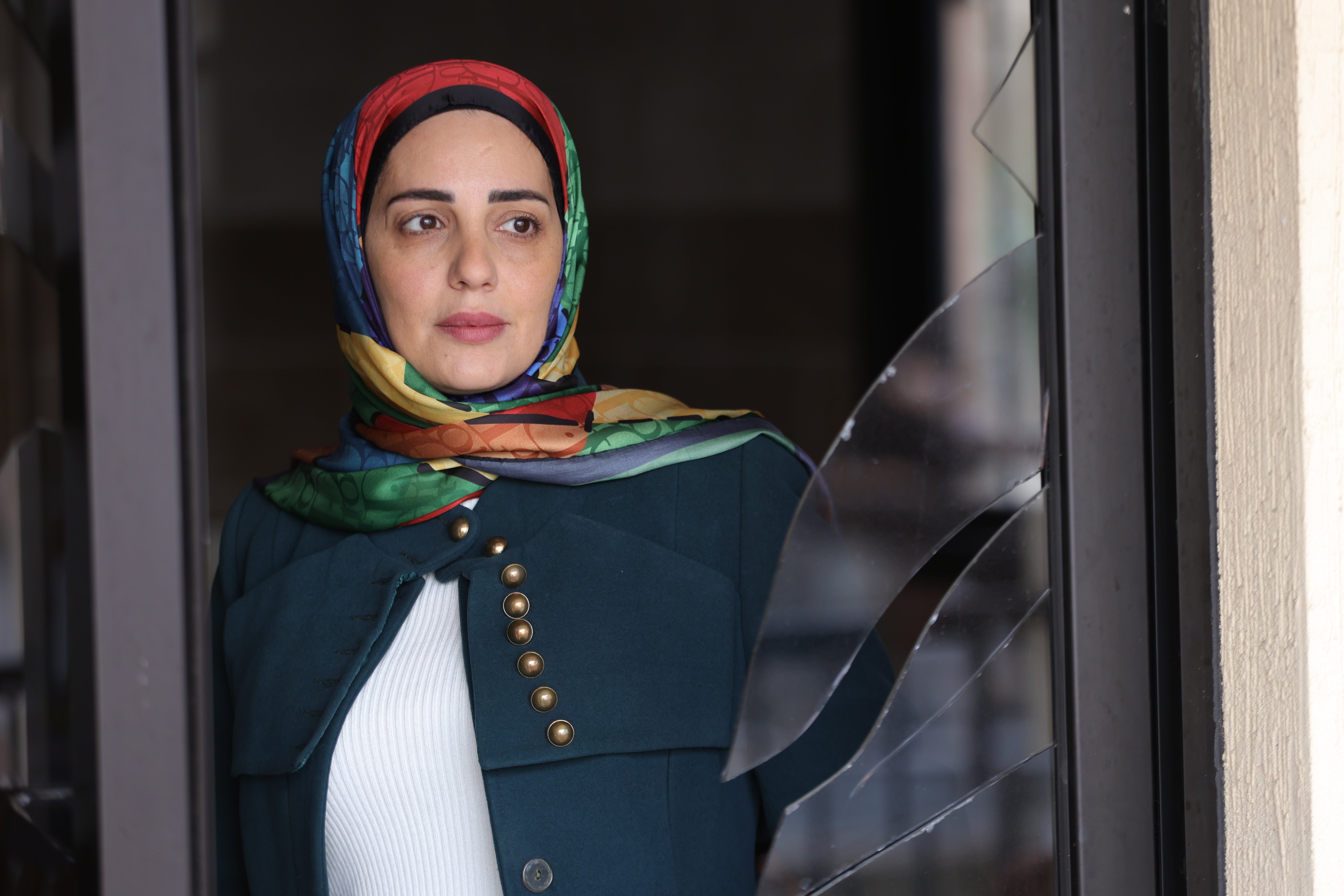In the words of Ghadeer Houmani: “Let’s look to the future with hope to restore our lives”
Date:
Ghadeer Houmani, President of the Social Work Spirit Association, spoke to UN Women from her office in Harouf, in the Nabatieh region, where the remnants of shattered glass and broken doors still testify to the horrors experienced in the area. The 45-year-old mother of two with a PhD in Life Leadership is a specialized trainer for numerous social institutions. During the conflict, Ghadeer and her family were displaced to the Jiyeh area. Once the shelling stopped, she was among the first to return, resuming work at her association while following up on what she started in the displacement centres in Jiyeh.
“Like other displaced individuals, I constantly felt a longing for my family, relatives, neighbours and home. We were all in a state of great shock, which left us unable to undertake any initiatives during the initial days. But shortly after, I felt an internal and psychological need to act and change this new reality, which I could not accept, and not remain powerless in the face of it. My children were a significant factor driving my efforts to restore my normal life and move forward.
I launched a voluntary social initiative in collaboration with the municipality and supervisors of the shelters in schools. I began to provide psychological and social support to anyone who wished to receive it, especially women. I organized individual and group sessions where I listened to their pain, fear and anxiety about the future. I always sought, by listening to them, talking with them and involving them in activities, to encourage them to overcome these feelings and not to succumb to or yield to them, emphasizing the necessity of rising anew.
During that period, the association documented many cases of gender-based violence, where both women and men experienced family issues. We organized sessions to help them navigate these tensions, especially since many had not previously encountered problems, but social and economic pressures led to the emergence of these strains.

We witnessed a significant response. We managed to build bridges of mutual trust within a safe space that helped women vent their feelings and cry, which often assists in relieving life’s burdens and reaching psychological comfort. Witnessing displaced individuals, especially women, suffering from extreme loneliness and the loss of the bonds they were accustomed to in their environments and communities was incredibly painful.
What I missed most during that dark period was the normal life we used to lead, whether within the family or in our communities, which we are now gradually regaining. We have resumed the association’s activities and the aid we provide.
Currently, we are working on assessing the situation in the most affected areas in preparation for distributing assistance, all financed through friendships and believers in the spirit of the association, which is based on helping and supporting people regardless of their sect, ethnicity, religion or political stance. At this stage, we must prioritize issues such as heating, supporting the southern olive season and ensuring essential medical assistance.
We will continue our work, regardless of the obstacles. We are now preparing to launch several projects individually or in collaboration with UN Women, in addition to completing the vocational workshops specialized for women that we’d started before the conflict, such as sewing and knitting, which teach women a specific craft or profession, with certification that enables them to initiate independent income-generating projects, helping them to sustain themselves and their families, and granting them a degree of independence.
I believe in the important role of women and their impact on society. The Lebanese woman is successful, strong, capable and supportive. We have all suffered and continue to do so, but I urge them not to give up, despite their exhaustion.
What has happened is in the past. We must look to the future with hope to restore our lives, for ourselves, for our children and for all members of society.”